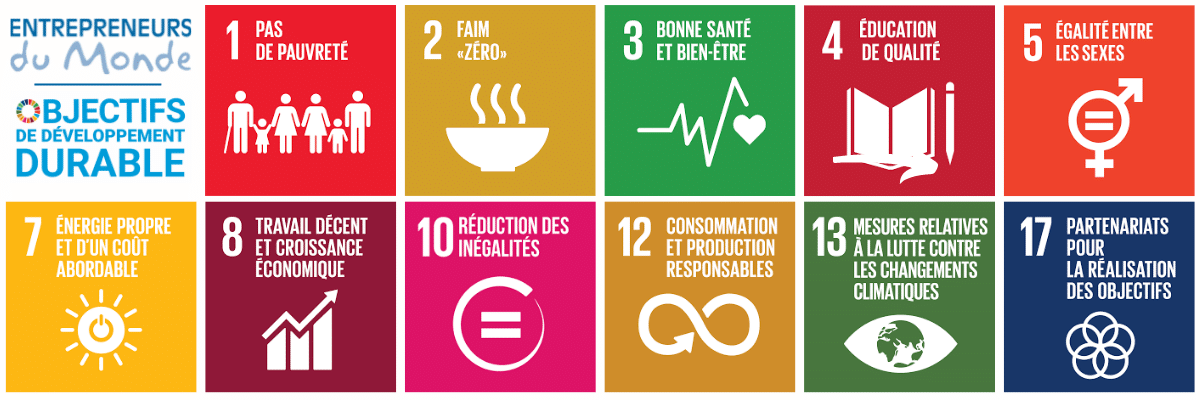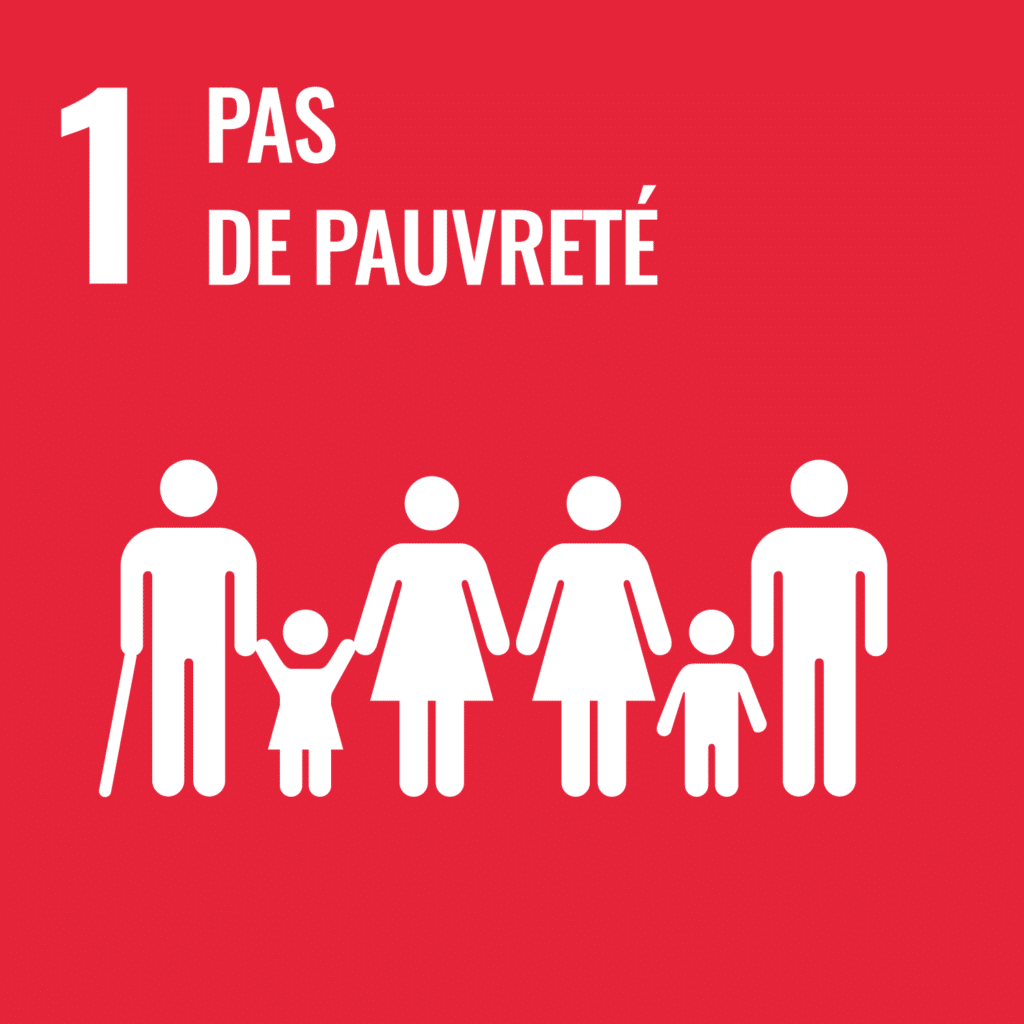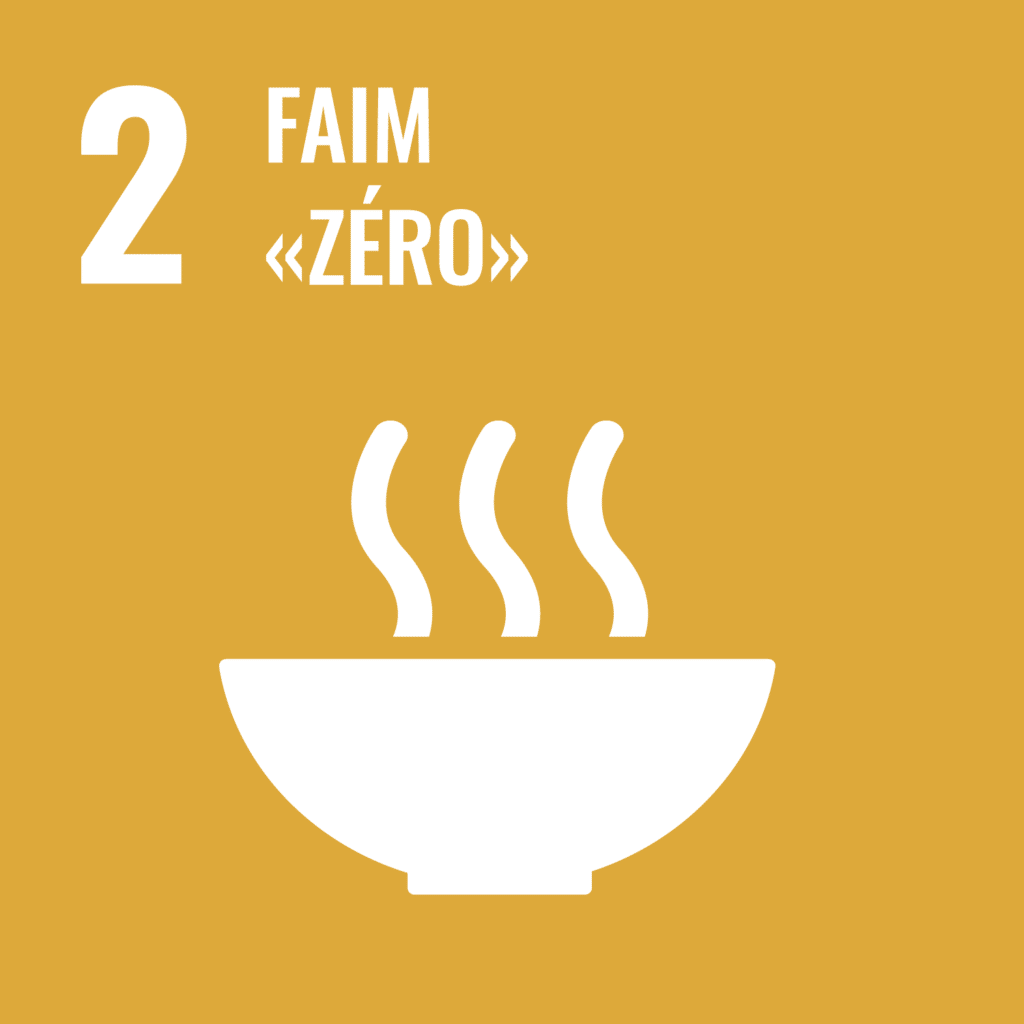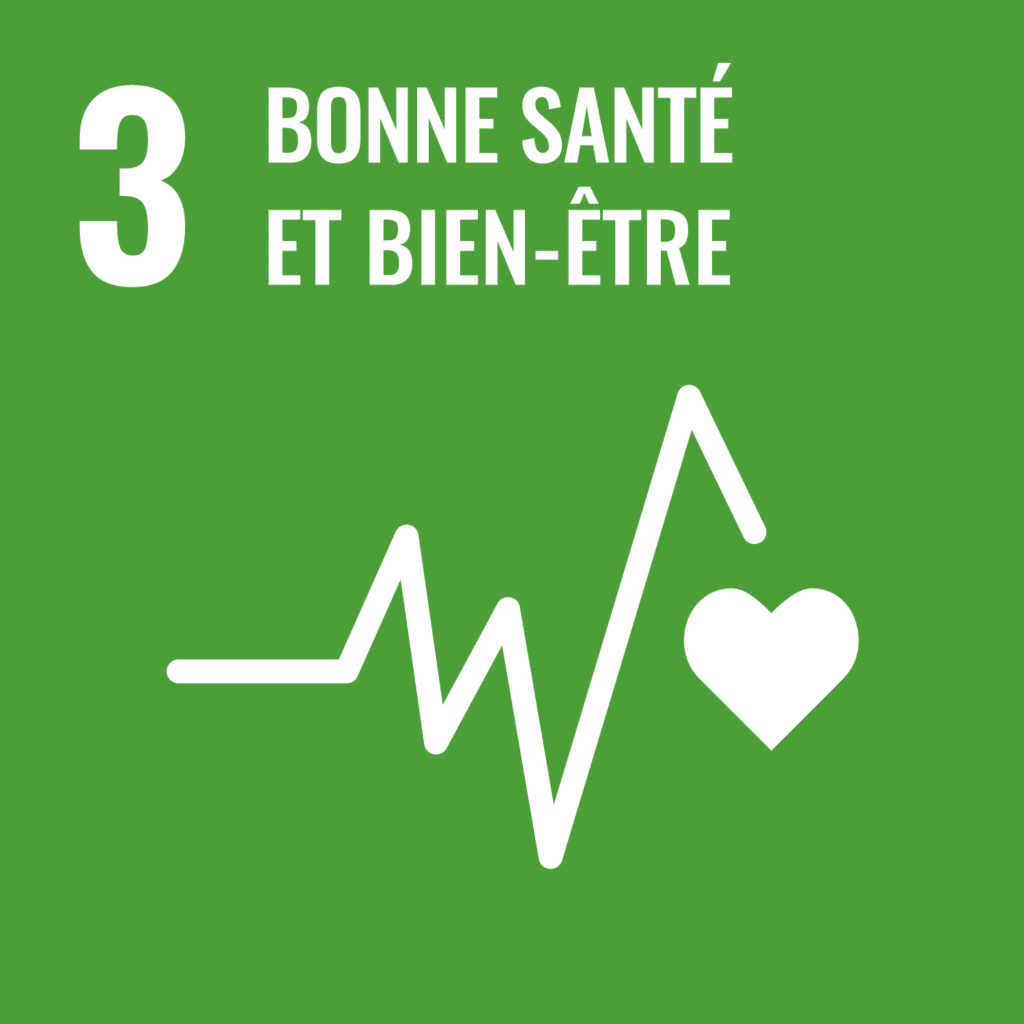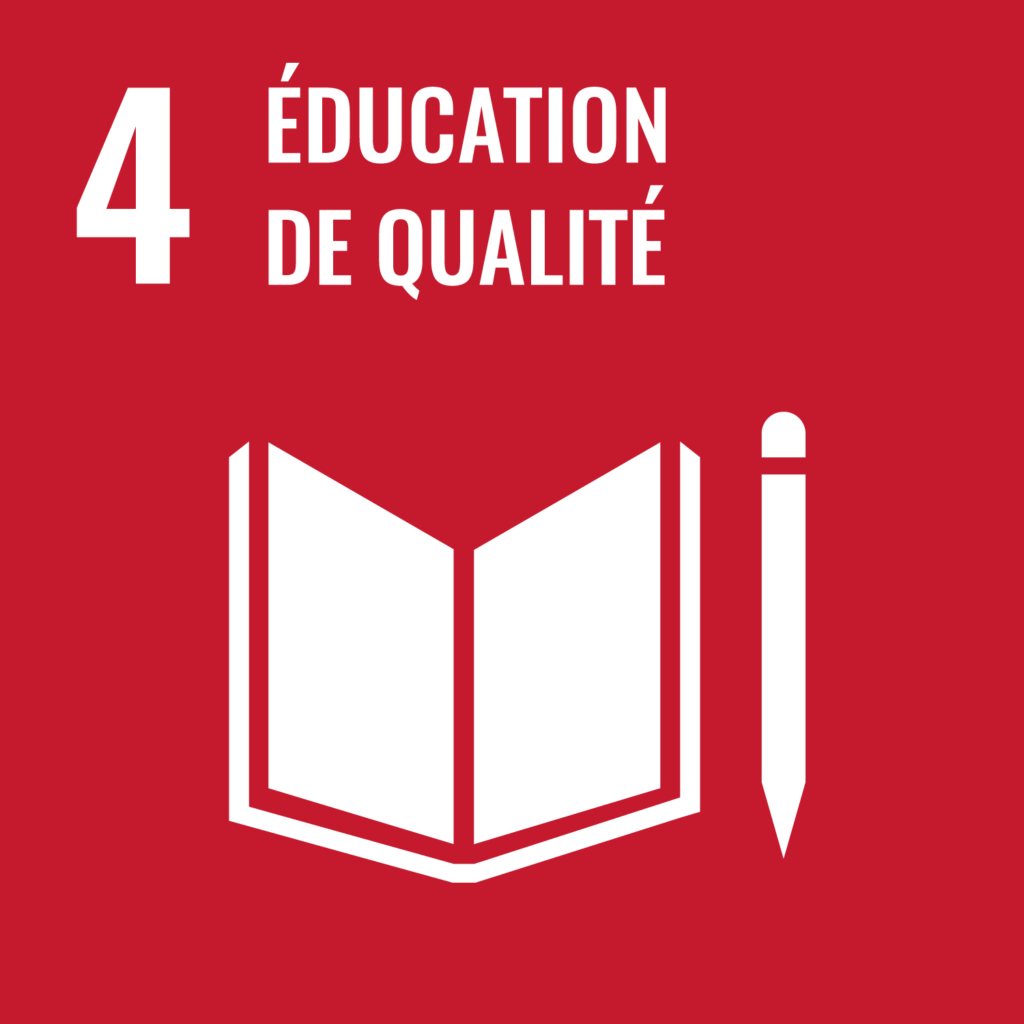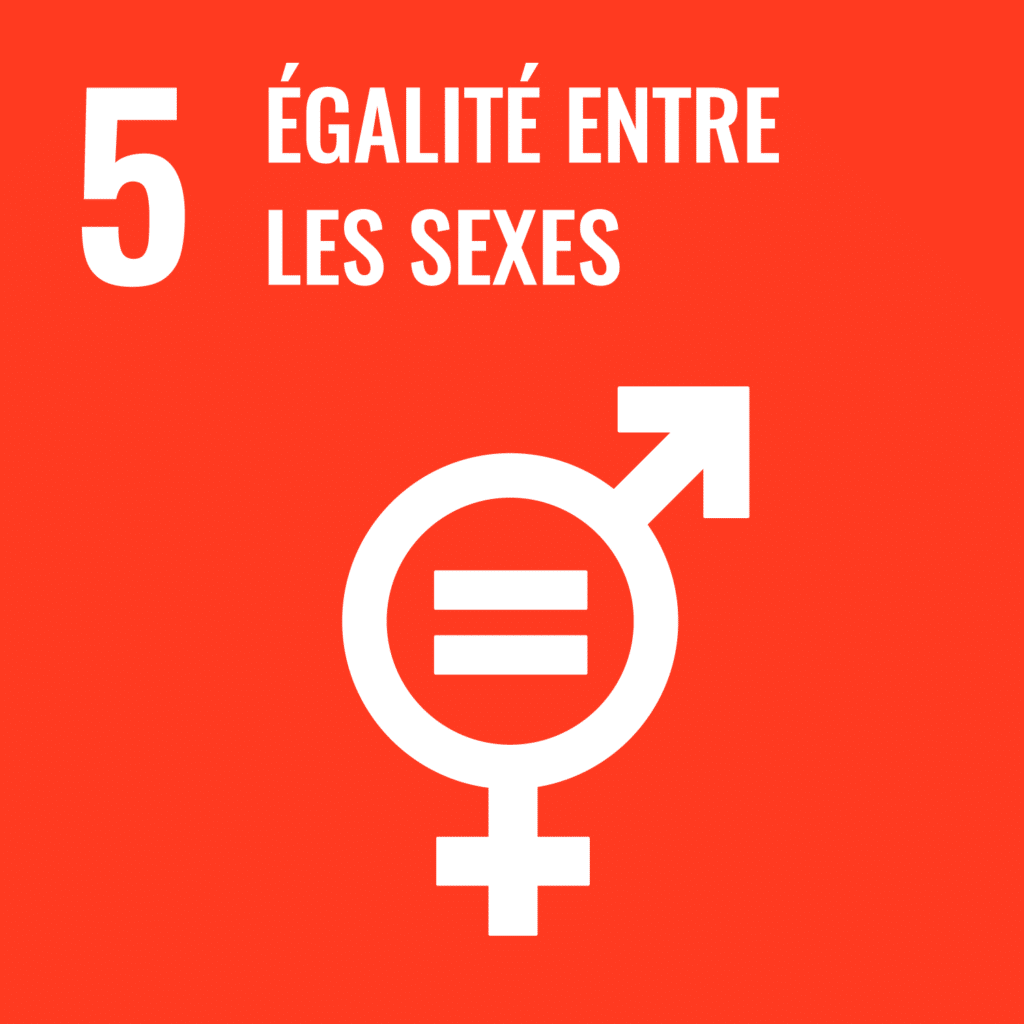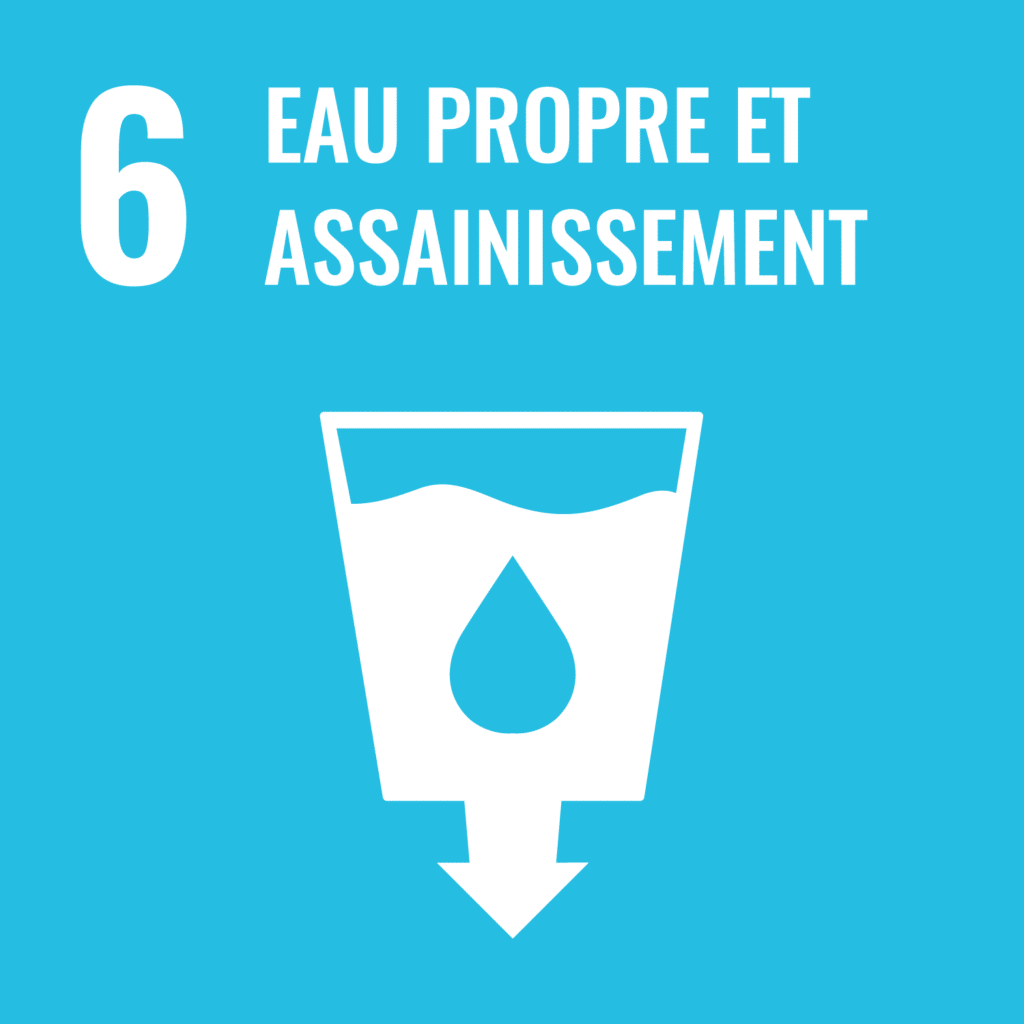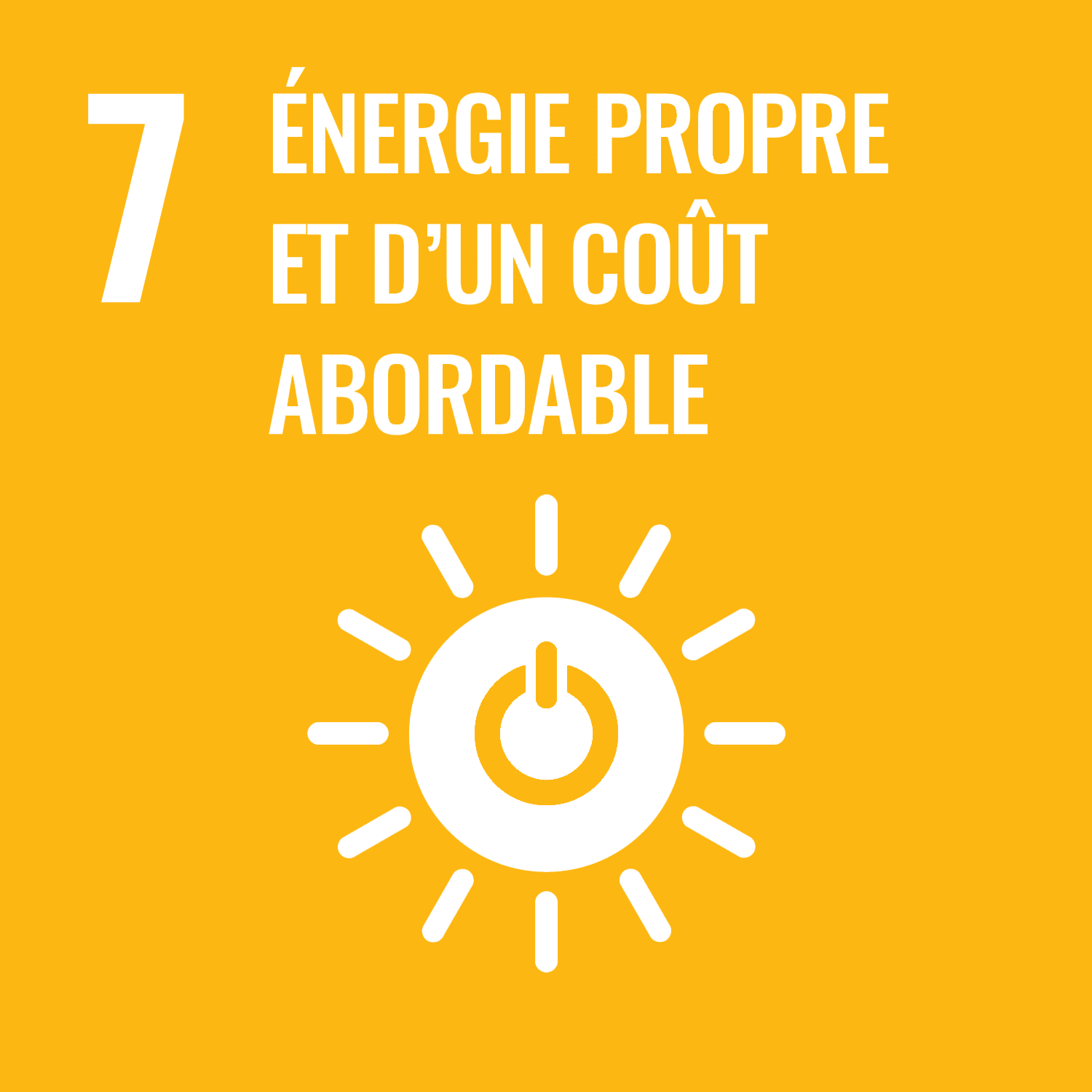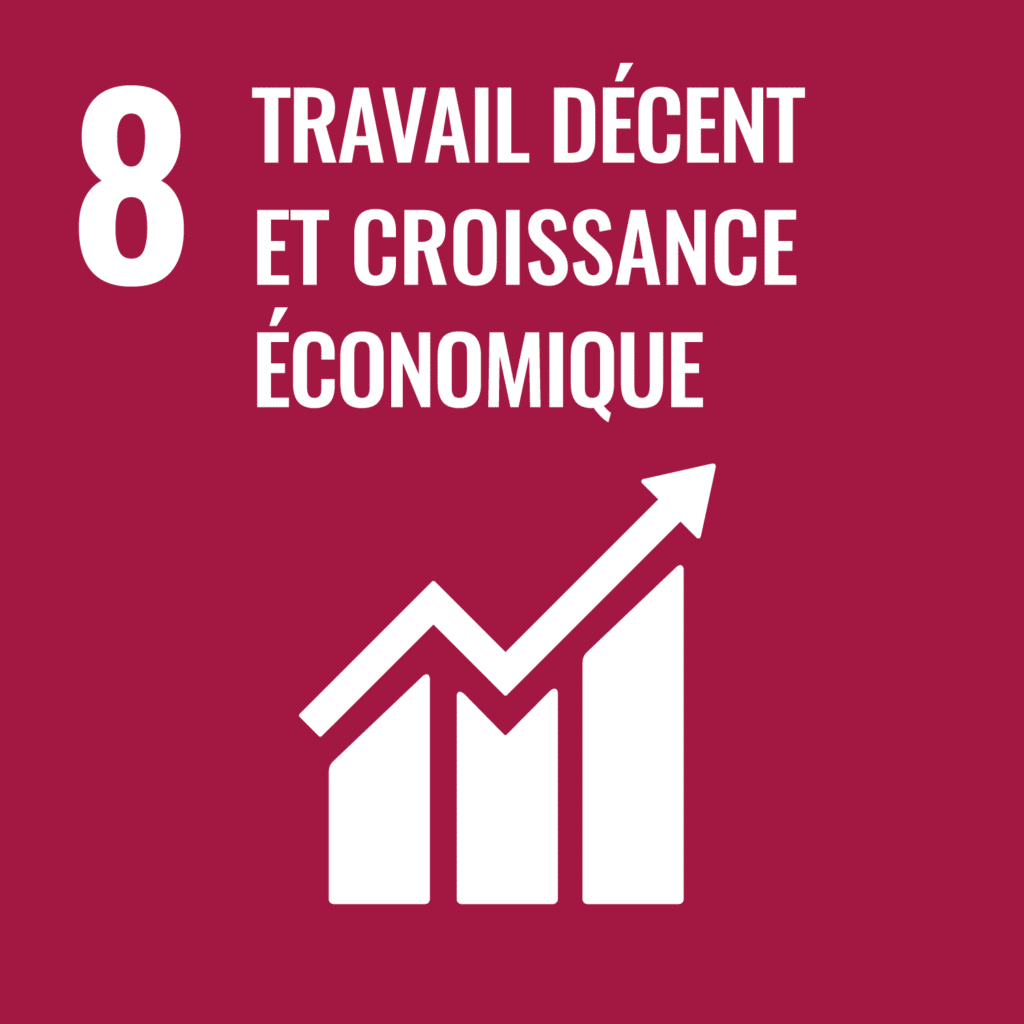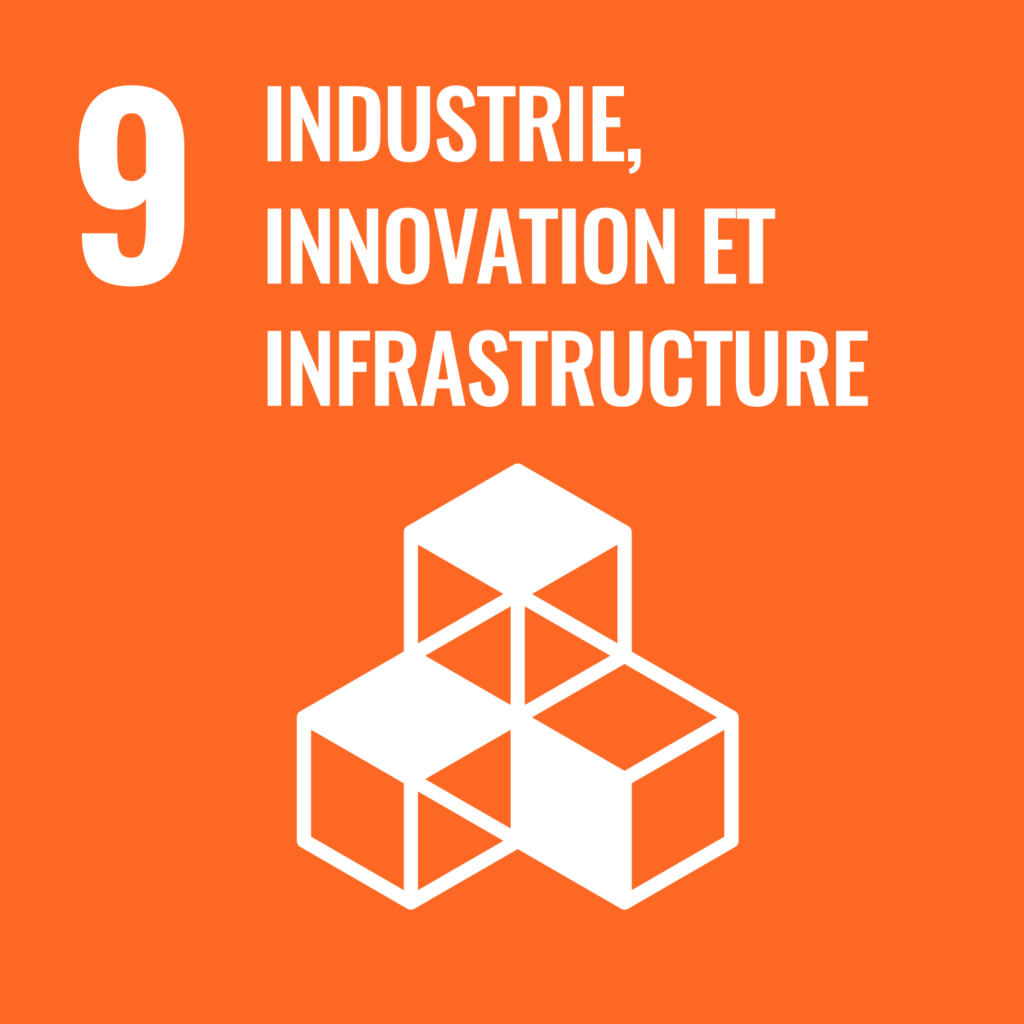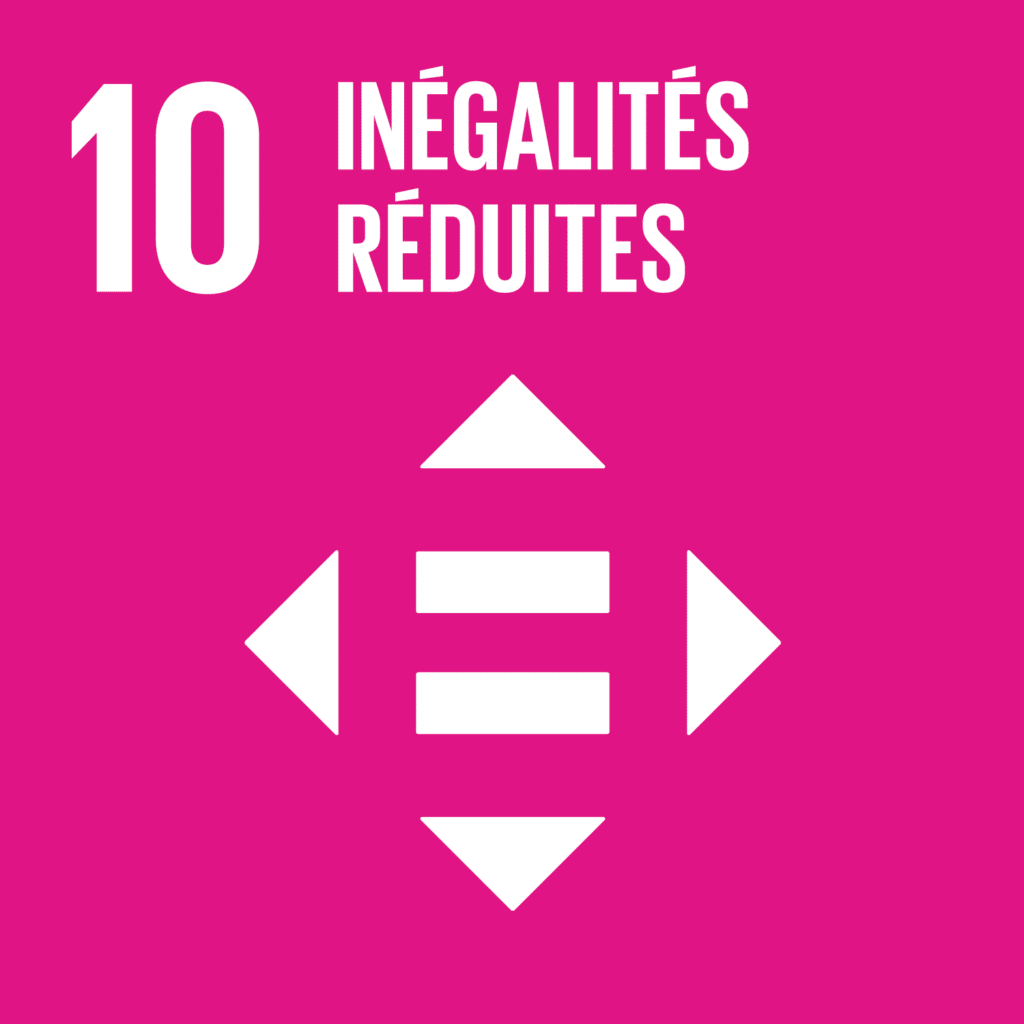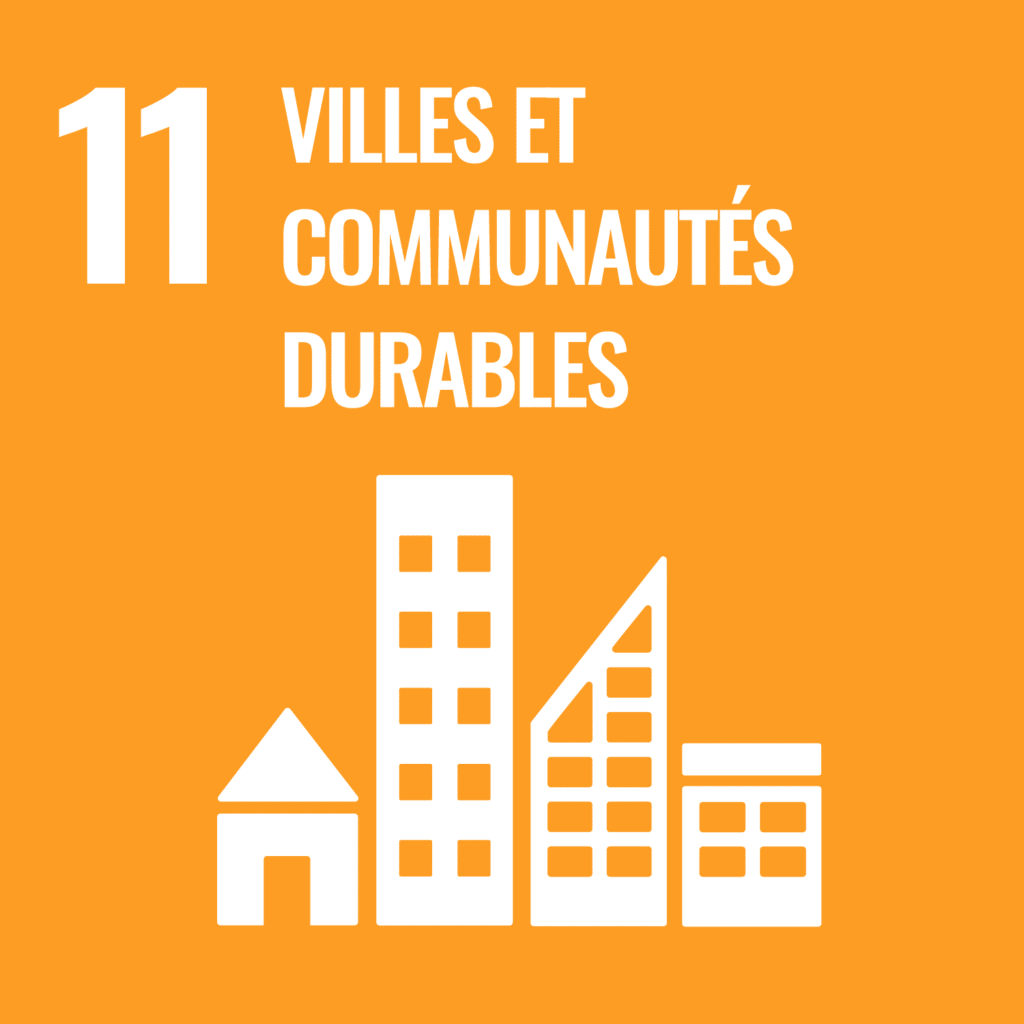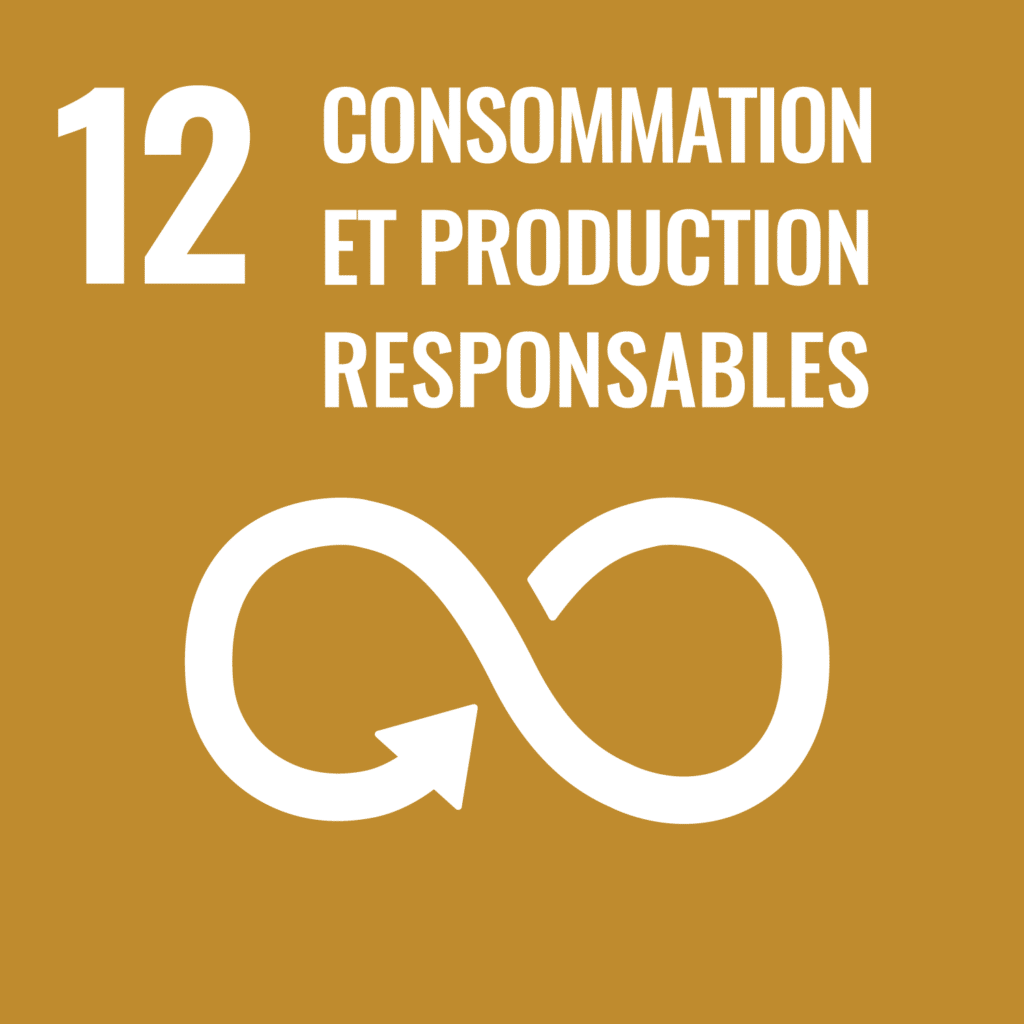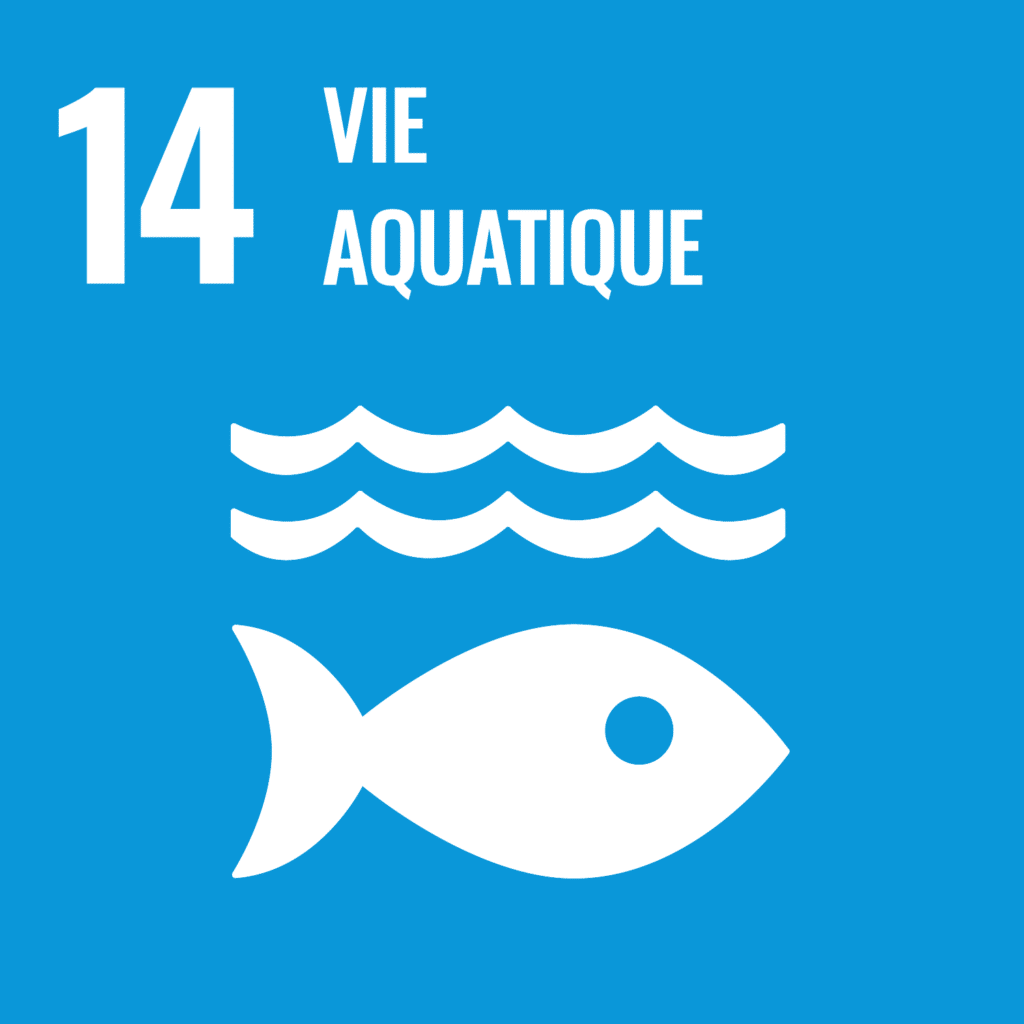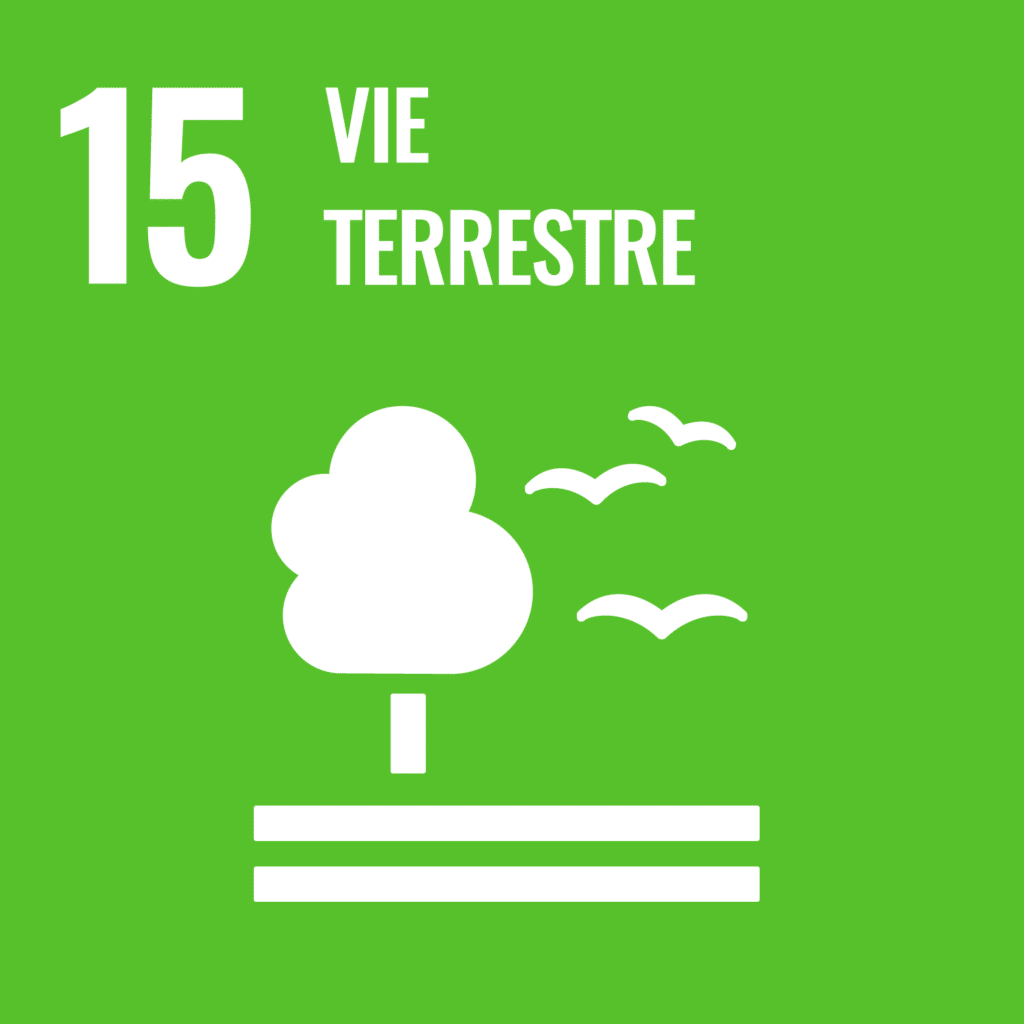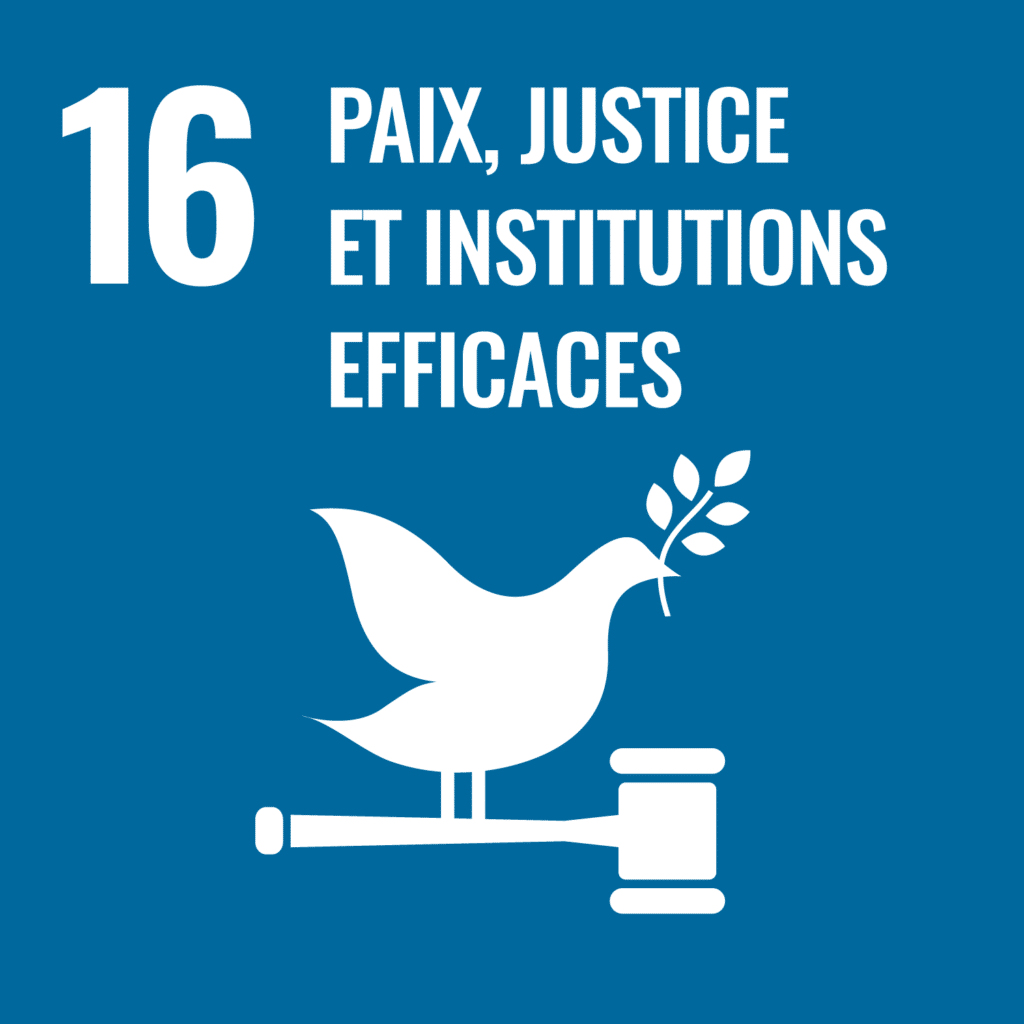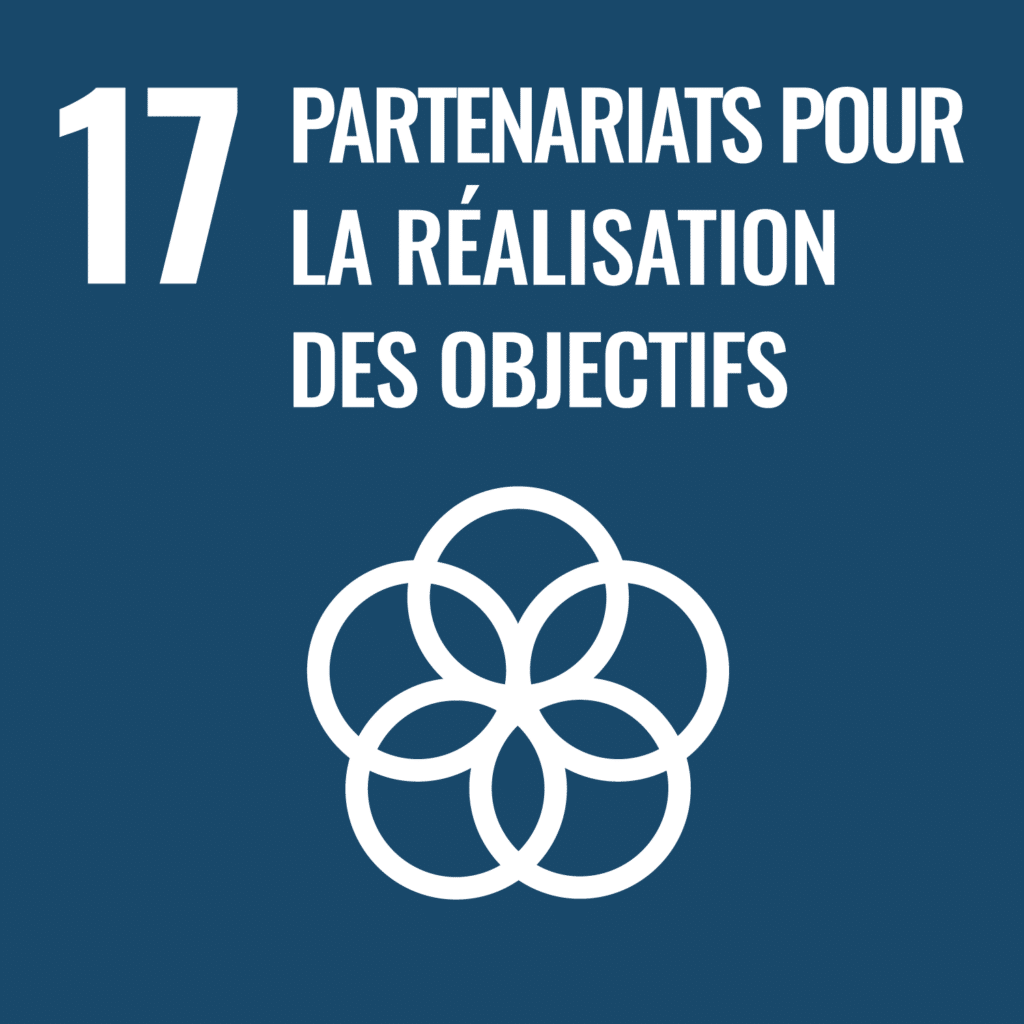The Sustainable Development Goals (SDGs) are a global program to end extreme poverty, combat inequality and injustice, and address climate change. It is a universal appeal that forms part of the Agenda 2030 signed by the member countries of the United Nations (UN) organization. In June 2024, the UN's tourism branch proclaimed 2027 the International Year of Sustainable and Resilient Tourism.
The SDGs are everybody's business!
The SDG program comprises an ambitious set of 17 goals. It is based on the human being as the bearer of change, and includes all players in society. It is also characterized by the recognition of the links between different themes. Meeting the Sustainable Development Goals means tackling global issues in a systemic way, and above all, it's everyone's business!
Towards resilient tourism in support of the SDGs
According to the UN, tourism, and in particular fair tourism, has the potential to contribute, directly or indirectly, to all 17 Sustainable Development Goals (SDGs) defined in 2015, and more specifically in Goals 8, 12 and 14. In the Chengdu Declaration on "Tourism and the Sustainable Development Goals" we read that:
Tourism, a vital instrument for achieving the 17 SDGs
"Tourism is a vital instrument for achieving the 17 SDGs and other goals thanks to its ability to stimulate shared economic growth, create jobs, attract investment, fight poverty, improve the living standards of local communities, promote the empowerment of women and young people, protect cultural heritage, preserve terrestrial and marine ecosystems as well as biological diversity, support the fight against climate change and, finally, accompany societies in their necessary transition towards greater sustainability."
2027, international year of sustainable and resilient tourism
In June 2024, the UN's tourism branch proclaimed 2027 the International Year of Sustainable and Resilient Tourism. "The Year 2027 will highlight tourism's unparalleled capacity to be a driver of development and a sector of opportunity, while emphasizing the need to ensure sustainable growth in all its dimensions and sufficient resilience to face future shocks and challenges," said UN Tourism Secretary-General Zurab Pololikashvili.
Ecovolunteering and meeting the 17 Sustainable Development Goals
Cap sur l'Ecovolontariat partners work directly on projects or select missions that respond positively to the UN's Sustainable Development Goals. This response to the SDGs takes a number of forms: participatory science; education; biodiversity preservation; wildlife protection; waste management; permaculture; community projects... Part of the amount paid by volunteers goes towards maintaining the host structure, thus promoting a virtuous circle.
Ecovolunteers, ambassadors for the SDGs
The SDGs concerned by the missions are essentially 2, 13, 14 and 15. On their return from their trips, ecovolunteers become ambassadors for the Sustainable Development Goals. The projects to which they have been sent, particularly those involving participatory research, help to train free, enlightened citizens who will be able to meet the challenges of our century. Whatever their age.
The 17 Sustainable Development Goals
No poverty
Economic growth must be shared to create sustainable jobs and promote equality. Between 1990 and 2015, the rate of extreme poverty worldwide fell from 36% to 10%. However, the pace of change has slowed. More than 700 million people, or 10% of the world's population, still live in extreme poverty today and struggle to meet their basic needs, including access to healthcare, education and water and sanitation. The majority of people living on less than $1.90 a day are in sub-Saharan Africa. Read more
Zero hunger
The food and agriculture sector offers key solutions for development, and is central to the eradication of hunger and poverty. After several decades of steady decline, the number of hungry people began to rise slowly again in 2015. Current estimates show that nearly 690 million people suffer from hunger, or 8.9% of the world's population. The world is not on track to achieve Zero Hunger by 2030. If recent trends continue, the number of people affected by hunger would exceed 840 million by 2030. Read more
Good health and well-being
Providing the means to live a healthy life and promoting well-being for all at all ages is essential for sustainable development. Progress has been made in recent years in improving global health. However, insufficient progress has been made in other areas, such as reducing maternal mortality and extending universal health coverage. The COVID-19 pandemic and ongoing crises have hampered progress towards goal 3. Child immunization has seen the sharpest decline in three decades, and deaths from tuberculosis and malaria have risen from pre-pandemic levels. Read more
Quality education
Achieving quality education is the foundation for improving people's lives and sustainable development. Education promotes socio-economic mobility and is a means of escaping poverty.Major progress has been made in improving access to education. Nevertheless, more than 260 million children and adolescents were not in school in 2018. In 2020, as the COVID-19 pandemic spread around the world, a majority of countries imposed temporary school closures; more than 91% of students worldwide were affected. By 2030, the aim is to ensure that all girls and boys receive a full course of free, quality primary and secondary education, leading to an apprenticeship, on an equal footing. Read more
Gender equality
Gender equality is not only a fundamental human right, but also a necessary foundation for a peaceful, prosperous and sustainable world. Progress has been made. More girls are going to school, fewer girls are being forced into early marriage, more women are sitting in parliaments and holding leadership positions, and laws are being reformed to advance gender equality. Despite these advances, many challenges remain: discriminatory laws and social norms are still omnipresent. Read more
Clean water and sanitation
Clean, accessible water for all is an essential element of the world we want to live in. Worldwide, one in three people do not have access to safe drinking water, two in five people do not have basic facilities for washing their hands with soap and water, and more than 673 million people still practice open defecation. The COVID-19 pandemic has demonstrated the crucial importance of sanitation, hygiene and adequate access to drinking water in preventing and controlling disease. Hand hygiene saves lives. Read more
Clean, affordable energy
Sustainable energy is an opportunity to transform lives, economies and the planet. Around the world, progress has been made towards achieving Goal 7, and there are encouraging signs that energy is becoming more widely accessible and sustainable. However, sustained progress is needed to improve access for 3 billion people to clean and safe cooking technologies and fuels; to increase the use of renewable energy beyond the power sector and; to expand electrification in sub-Saharan Africa. By 2030, the aim is to guarantee access for all to reliable, modern and affordable energy services. Read more
Decent work and economic growth
We need to review and reorganize our economic and social policies, with the aim of eliminating poverty altogether. Multiple crises pose a serious threat to the global economy. The objectives are to Maintain a per capita economic growth rate adapted to the national context; to achieve a high level of economic productivity through diversification, technological modernization and innovation, notably by focusing on high value-added and labor-intensive sectors; promote development-oriented policies that foster productive activities, decent job creation, entrepreneurship, creativity and innovation, and stimulate the growth of micro, small and medium-sized enterprises and facilitate their integration into the formal sector, including through access to financial services... Read more
Industry, innovation and infrastructure
Investment in infrastructure is essential to achieving sustainable development. Sustainable industrialization that benefits all, coupled with innovation and infrastructure, can unleash dynamic, competitive economic forces that generate jobs and income. These factors play a crucial role in the introduction and promotion of new technologies, the development of international trade and the efficient use of raw materials. However, much remains to be done worldwide to fully exploit this potential. Least-developed countries, in particular, need to step up the development of their manufacturing sector if they are to achieve this goal by 2030, and must increase their investment in scientific research and innovation. Read more
Reduced inequalities
Reducing inequalities within and between countries. Reducing inequalities and ensuring that no one is left behind is an integral part of efforts to achieve the Sustainable Development Goals, yet inequalities within and between countries remain a cause for concern. Despite some positive signs in favor of reducing inequalities in certain areas, such as the reduction of income inequalities in some countries and the granting of preferential trade status to low-income countries, inequalities persist. By 2030, the aim is to ensure, through progressive improvements, that the incomes of the poorest 40 percent of the population grow faster than the national average income, in a sustainable way. Read more
Sustainable cities and communities
The future we want includes cities that offer great opportunities for all. The world is becoming increasingly urbanized. Since 2007, more than half the world's population has lived in cities, and this proportion is set to rise to 60% by 2030. Cities and metropolitan areas are poles of economic growth, contributing almost 60% of the world's gross domestic product. However, they also account for almost 70% of the world's carbon emissions and more than 60% of the resources used. Rapid urbanization is resulting in increasing numbers of people living in slums, as well as inadequate and overburdened infrastructure and services (such as waste collection and water supply and sanitation systems, roads and transport), aggravating air pollution and unplanned urban expansion. Read more.
Sustainable consumption and production
Sustainable consumption and production is about "doing more and better with less". Global consumption and production are based on using the environment and natural resources in a way that continues to have destructive effects on the planet. If the world's population reaches 9.6 billion by 2050, the equivalent of almost three planets could be required to provide the resources needed to sustain current lifestyles. A key objective is to achieve sustainable management and rational use of natural resources by 2030. Read more
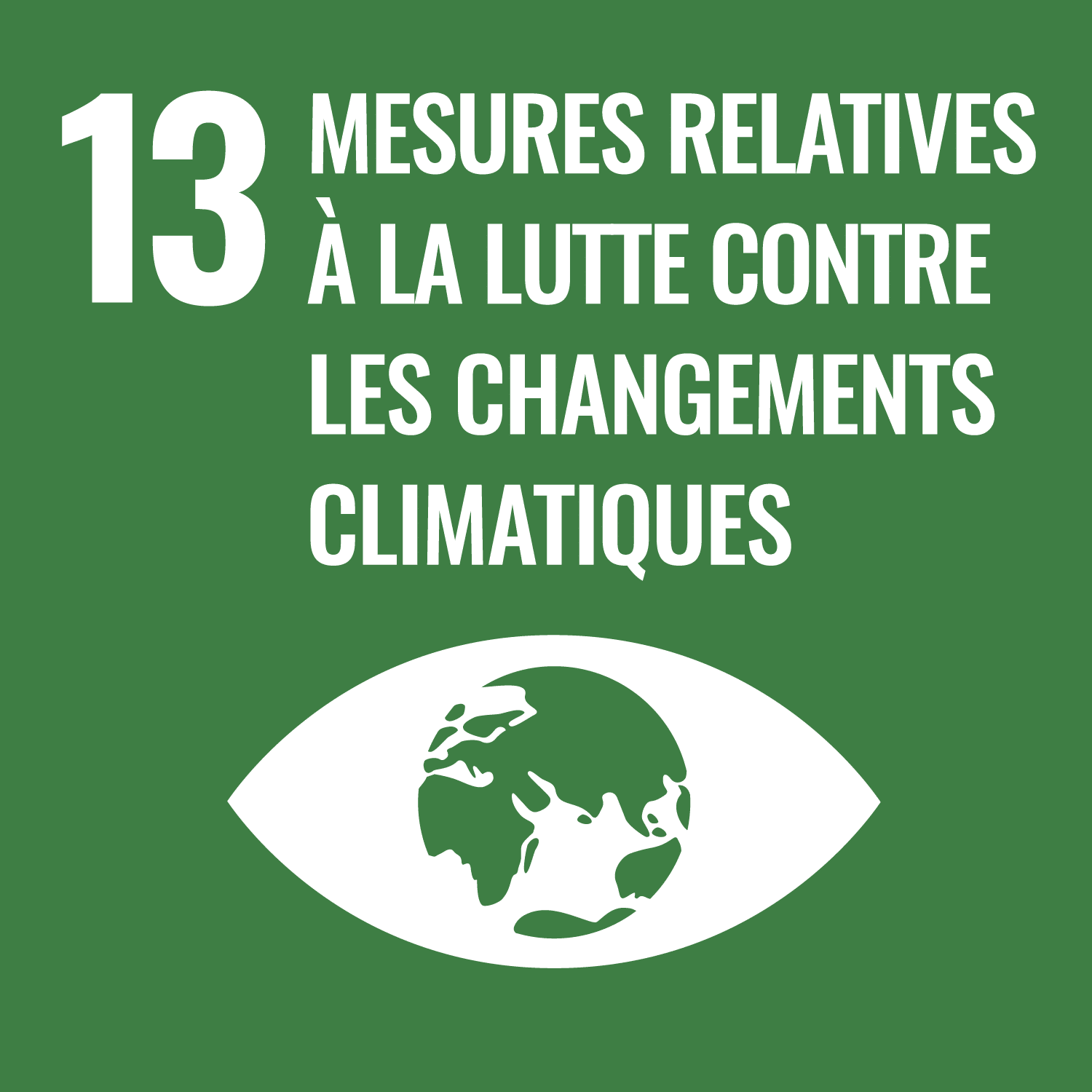
Measures to combat climate change
Combating global warming has become an integral part of achieving sustainable development. With climate cataclysm imminent, the pace and scale of current climate action plans are wholly inadequate to effectively combat climate change. Increasingly frequent and intense extreme weather events are already affecting every region of the world. Rising temperatures will further amplify these dangers, posing serious risks. The Intergovernmental Panel on Climate Change (IPCC) stresses that deep, rapid and sustained reductions in greenhouse gas emissions are essential in all sectors. Read more
Aquatic life
Careful management of our oceans and seas is vital for a sustainable future. The ocean underpins the global phenomena that make our planet habitable for humankind. Rainwater, drinking water, weather, climate, coastlines, much of our food and even the oxygen in the air we breathe, are all supplied and regulated by the oceans. However, the ocean is in a state of emergency, as its health is being damaged by increasing eutrophication, acidification, warming and plastic pollution. What's more, the alarming trend towards over-fishing persists, leading to the depletion of over a third of the world's fish stocks. Safeguarding our ocean must remain a priority. What's more, marine biodiversity is essential to human health and that of our planet. Marine protected areas must be effectively managed and adequately resourced. Read more
Life on earth
Nature is essential to our survival: it provides us with oxygen, regulates our weather, pollinates our crops and produces food and clothing. Yet nature is under increasing pressure. In total, 75% of the earth's surface has been altered by human activity, forcing flora and fauna to retreat into ever-smaller spaces. Some 1 million animal and plant species are already threatened with extinction. What's more, the health of our planet is also a major factor in the emergence of zoonoses, i.e. diseases transmitted from animals to humans, and vice versa. Goal 15 is broken down into more than ten target objectives, including, by 2030, ensuring the preservation of mountain ecosystems, particularly their biodiversity, in order to make better use of their essential benefits for sustainable development. Read more
Peace, justice and effective institutions
Promoting peaceful and inclusive societies, access to justice for all and strengthening accountable and effective institutions at all levels. The violent conflicts that arise or persist around the world are taking us further away from peace and the achievement of Goal 16. Alarmingly, the year 2022 saw an increase in conflict-related civilian deaths of over 50%, largely due to the war in Ukraine. By the end of 2022, 108.4 million people had been forcibly displaced worldwide, an increase of 19 million compared to the end of 2021 and two and a half times more than ten years ago. Significantly reduce all forms of violence and their associated mortality rates worldwide. Read more
Partnerships to achieve objectives
Inclusive partnerships built on principles and values, a shared vision and common goals are needed. The great ambition of the SDGs hinges on strong global cooperation and partnerships. Inclusive partnerships are necessary for a successful sustainable development agenda. These partnerships, built on principles and values, a shared vision and common goals that put people and planet at the center, are needed at global, regional, national and local levels. Strong international cooperation is needed now more than ever to ensure that all countries have the means to recover from the pandemic, build back better and achieve the goals of sustainable development. Read more

